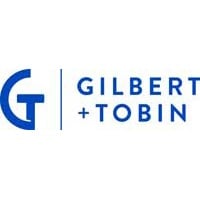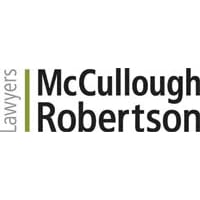
General counsel and company secretary | Stockland





Katherine Grace
General counsel and company secretary | Stockland
General counsel and company secretary | Stockland
Katherine Grace is recognised by many as one of Australia’s leading property lawyers. In her previous role as Westfield Retail Trust’s GC, she completed the Trust’s merger with Westfield Group....
General counsel and company secretary | Stockland
Katherine Grace joined Stockland in 2014 as general counsel and company secretary. Prior to her current role she was the general counsel and company secretary of Westfield Retail Trust. In...
Stockland is an active property developer, manager and operator, and over the past two years the legal team has played a key role in many large transactions including the acquisition of multiple development sites for our residential and logistics businesses. We have been instrumental in delivering on our retail non-core asset disposal programme as well as executing on key joint ventures including at our A$5bn master-planned community in Aura on the Sunshine Coast and Melbourne Business Park, which will be the largest logistics site in Melbourne on completion. Our in-house residential conveyancing team has been a market leader in adopting PEXA, and as the largest residential developer in Australia we have been committed to adopting technology to drive great outcomes for our customers when purchasing homes.
In addition to the work undertaken by the legal team, I am also responsible for all risk functions at Stockland, and we have focused on embedding our three lines of defence risk management framework and delivered some significant initiatives including in relation to cladding, work, health and safety and crisis management.
As a direct report to the managing director and chief executive officer I am a member of the executive committee, and this provides me with the opportunity to participate in and shape the diversity and inclusion policies for the whole organisation.
I am fortunate to work in an organisation that has a strong focus on building a diverse and inclusive culture. Stockland has been recognised as a WEGA Employer of Choice for the past five years, our managing director is a member of the male property champions of change which is convened by one of our directors, Carol Schwartz.
Not only do I have an opportunity to participate in driving the direction of our policies, but as the previous sponsor of our employee advocacy group for gender equity I have had the opportunity to build grass roots engagement with our employees on key gender initiatives. These employee led groups, which also focus on wellbeing, accessibility and cultural inclusion, flexibility and LGBTIQ+, help translate our corporate policies into action on a daily basis.
The evolving role of the general counsel in a post-Hayne world.
The general counsel role has significantly evolved over the past 15 years, with many general counsel broadening their engagement with companies beyond the oversight of legal and regulatory matters into broader governance and risk specialists. In the aftermath of the Royal Commission into Banking, Superannuation and Financial Services, the APRA Prudential Review of CBA and recent consultation on remuneration arrangements, the role played by the general counsel has continued to evolve, both at the board table and across the organisations in which they operate.
Review and assessment of end-to-end processes, risk appetite, consequence management and stakeholder engagement are all areas that general counsel now play a strategic role in. While this creates great opportunities for legal advisers to stretch and broaden their roles, it also heightens some of the traditional tensions for general counsel who are both confidential and trusted advisers to their directors as well as active members of their executive teams.
Increasingly, general counsel are assuming responsibility for risk functions within the organisation they work for and, depending on the size and nature of the organisation, they are either closely aligned to the people and culture functions or also assuming responsibility for these areas of the business. While this can create real synergies in identifying, assessing and embedding consistency in the approach to risk in organisation, some of the practical challenges this can create for general counsel who run multi-functional business units include balancing the independence of their role, duties as a practising solicitor and legal professional privilege.
These challenges are heightened by the evolving discussion around many boardrooms in Australia around how an organisation moves from a “can we” to a “should we” culture, often taking general counsel into a new role of moral and ethical adviser to the company. With an existing professional continuing education obligation around ethics, general counsel and their in house teams are uniquely placed to shape these conversations.
In addition to wearing many hats, the general counsel is also becoming a key facilitator of engagement across business units. Indeed, it is clear that following the findings of the Royal Commission into Banking, Superannuation and Financial Services the risk, compliance, legal, finance and people functions need to work together to understand not only how risk and reward work across their organisations, but to think strategically about the medium and long term consequences of the processes and systems that the organisation has in place. It is increasingly important for the legal, risk and compliance teams to understand the remuneration arrangements, not only at an executive level, but across all employees.
In addition a key focus area for my team over the past 12 months has been around our customer facing roles, not only in terms of the processes and systems in place to manage customer engagement, but the way in which our customer facing employees are assessed and rewarded. For legal teams that mainly engage with internal clients, this heightened focus on the voice and experience of the customer is a great opportunity to assess their own stakeholder engagement through a new lens.
It has also been interesting to watch the unfolding debate around some of the practicalities of boardrooms in the post-Hayne environment. Many general counsel also perform the role of company secretary and include among their many responsibilities the recording of board and committee meetings. In the wake of cross examination of senior directors about the nature, content and purpose of board minutes at the Royal Commission into Banking, Superannuation and Financial Services there has been a lot of discussion about what best practice looks like in relation to minute taking. This has been a welcome debate as one of the many challenges for company secretaries is that there are limited opportunities to share and discuss the format of board and committee minutes due to the confidential nature of their content. In August 2019 the Australian Institute of Company Directors and the Governance Institute of Australia issued a joint statement on board minutes summarising key principles and legal issues for consideration.